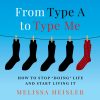Toxic Shame
Brené Brown talks a lot about guilt versus shame. Guilt is I did something bad. Shame is I am bad. Shame takes what is an action or behavior and makes it a truth about oneself. On some level, we have all experienced shame. It is normal. What is detrimental is when we have chronic, deep, unconscious toxic shame. Toxic shame is when we accept a dishonest belief about ourselves without even knowing it. Recently I have been doing a lot of work to uncover and excise my own toxic shame, my own dishonest deep-seated beliefs.
One example is my belief that my needs are secondary to the needs of others. I believe my needs, that my very well-being is inconvenient to those I love. When those I care about are doing well, I allow myself to have needs. But when they are sick, stressed, or super busy, I can’t imagine adding to their pain and hurting them more with my needs. As a result, I withdraw and try to become invisible. I think I am keeping pain from them, when in fact I am creating discomfort for everyone due to my withdrawal.
What needs to be healed are not my actions – my withdrawal, resentment and feeling of victimization – no, what needs to be healed is the toxic shame. What needs to be shifted is that intrinsic belief that I am not worthy, the belief I should not exist. Where the belief came from doesn’t matter as much as the fact that it is there, under the surface, just waiting for the chance to pop up and ruin my life.

Here is how I am combatting the hidden toxic shame in my life:
Awareness: Instead of playing the same old record I used to, instead of allowing myself to react in the way I always do, I am hitting the pause button. When I start feeling poorly, I stop and take inventory of what is going on: what is the situation, who is involved, what am I feeling. Before I can make any changes, I need to be aware of what I am doing. So much of our life is run on autopilot. To change our unconscious programming, we need to stop and look at what is really happening.
Investigation: Next I play detective. I start at the surface. What is the issue? In this case, I felt my husband was busy and didn’t have time for me. If I stayed here, it would have led to victimization and anger; he is being a jerk. Instead of attacking the other person involved, I went deep into my thinking. What was my belief? How was I interpreting the situation? What were my expectations? What was the thought behind the situation? In this incident, I got as deep as noticing that when my husband is busy my reaction is to hide my needs. I know my reaction was wrong as it was causing me pain, and if I let it continue, I would follow my old path and become passive-aggressive victim girl – which ain’t pretty. So . . .
Reach Out: I reached out to a trusted friend who is also doing her work. I was able to talk to her on a profound level and explain what was going on. She was able to see me as I could not see myself. She could see that I was actually acting on a deep unconscious belief that I was an unworthy burden. Wow. This level of understanding provided the opportunity to change not just this situation, but to hopefully prevent or minimize situations in the future.
Rewrite: What I worked on next was to create willingness to release the belief I was being a burden. I am still in the process as the belief has been with me for half a century, it did not disappear overnight, but it is growing weaker.
Next time you find yourself unhappy, stop and become aware of the situation; don’t just play it out like you usually do. Investigate what and why you are doing what you are doing, get as deep as you can into your underlying thoughts. Reach out to a trusted friend who can objectively see what is happening and provide you with the insight you can’t find on your own. Then rewrite your thinking to bring joy today and in the future.




